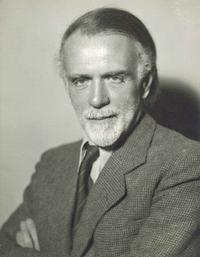| B i o g r a p h y |
 Zoltán Kodály
(born December 16, 1882 in Kecskemét - died March 6, 1967 in
Budapest) was a Hungarian composer, ethnomusicologist, educator,
linguist and philosopher. After gaining his PhD in philosophy and
linguistics, Kodály went to Paris where he studied with Charles
Widor. There he discovered, and absorbed influences from, the music of
Claude Debussy. He continued his folk music-collecting expeditions
through World War I without interruption.
Zoltán Kodály
(born December 16, 1882 in Kecskemét - died March 6, 1967 in
Budapest) was a Hungarian composer, ethnomusicologist, educator,
linguist and philosopher. After gaining his PhD in philosophy and
linguistics, Kodály went to Paris where he studied with Charles
Widor. There he discovered, and absorbed influences from, the music of
Claude Debussy. He continued his folk music-collecting expeditions
through World War I without interruption.
Kodály subsequently became very interested in the problems of
music education, and wrote a good deal of educational music for
schools, as well as books on the subject. Some commentators refer to
his ideas as the "Kodály Method" See also: Kodály Hand
Signs. He continued to compose for professional ensembles also, with
the Dances of Marosszék (1930, in versions for solo piano and
for full orchestra), the Dances of Galanta (1933, for orchestra), the
Peacock Variations (1939, commissioned by the Concertgebouw Orchestra
to celebrate its fiftieth anniversary) and the Missa Brevis (1944, for
soloists, chorus, orchestra and organ) among his better known works.
The suite from his opera Háry János (1926) also became
well known, though few productions of the opera itself take place. It
was first performed in Budapest and conductors such as Toscanini,
Mengelberg and Furtwangler have included this piece in their
repertoires.
Kodály made a considerable contribution to chamber music
also: notably a virtuosic sonata for unaccompanied cello, and a
half-hour-long Duo for cello and violin. In 1966, the year before
Kodály's death, the Kodály Quartet, a string quartet
named in Kodály's honour, formed.
Selected compositions:
* Concerto for Orchestra (1939)
* Trio for 2 Violins and Viola
* Duo for violin & cello, Op. 7 (1914)
* Sonata for solo cello, Op. 8 (1915)
* Missa Brevis for soloists, chorus & organ (1944)
* Laudes organi, for chorus & organ (1966)
* Dances of Marosszék (1930)
* Dances of Galanta (1933)
* Háry János (1926)
* Te Deum (1939)
* Peacock Variations (1939)
* Psalmus Hungaricus (1923)